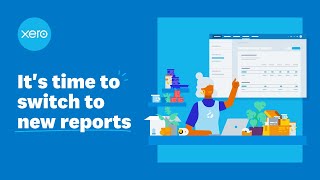How can a small business accountant help you?
A small business accountant can do so much more than help you prepare your annual tax return.
As well as taking care of tax and compliance, a good small business accountant can act as a strategic advisor. They will fill the role of financial business coach, improving your cash flow and setting you up for success.
Take a quick look at just a few of the business-boosting services a quality small business accountant will provide outside of filing your taxes and doing your compliance:
1.Business set up and initial funding
If you are just starting out, you will likely need some capital to get the ball rolling. A small business accountant can provide you with advice on applying for finance and help you with the application process by creating forecasts and calculating operating costs.
As a new business, you should also be looking to establish good financial habits. These will help you stay in control of your money for the long term. Your accountant will help you put money management strategies in place which will point you in the right direction from the get-go.
2. Untangle your financial statements
Profit & Loss, balance sheets, cash flow, outgoings, amounts owing…
There are a lot of moving parts to take care of when it comes to the money side of your business.
When you work with a small business accountant they can show you how to prepare and keep track of your financial statements, revealing clearly how much money is left after you have tallied up all your revenue streams and expenses.
After simplifying your financial statements, your small business accountant will be able to break down where you could be optimising your revenue and how you can reduce your operating costs.
3. Debt / loan management
Not all debt is created equal. The right small business accountant can help you with loan strategies or talk to you about how you can consolidate your debts for better money management.
Your accountant will be able to identify which debts are urgent and which can be taken care of with flexible payments, tailoring this side of your financial management to suit your business.
4. Improve your cash flow
Once you have your debts under control, it is important to follow up on the payments which are owed to your business. If you’re trapped in a cycle of chasing late-paying clients, your accountant can suggest ways of outsourcing this, and possibly taking over this function for you This could involve organising ongoing payment agreements or putting strategies in place to prevent overdue invoices.
As well as finalising outstanding debts, your accountant will be able to show you how to set up your business for better monthly cash flow. They can also identify areas where you can save, for example on elements including:
– Equipment
– Staff
– Storage
– Administrative costs
– Inventory
5. Give you back some time
Good accountants are efficient! They use smart software to automate the processes which can take up hours of your working week.
Even if you’re completely hands-off when it comes to accounting, your accountant should be able to give you ideas about how you can streamline your business using the latest technology and systems.
6. Help with staffing decisions
Along with your HR consultant, your small business accountant can discuss with you which areas of your business will benefit the most from new hires. They can help you forecast return on investment so you can make the right decisions when it comes to bringing on team members.
Your accountant can also clarify the exact cost of a new hire, including onboarding, ongoing training, superannuation and bonuses.
7. Future proof your business
A key role of a small business accountant is to assist with forecasting, budgeting and planning. Your accountant can help you figure out how much money you will make in the coming months and shed light on whether you can afford to hire new staff or lease that new fleet of vehicles.
Your small business accountant is also a valuable asset when it comes time to sell your business. By keeping track of annual incomings and outgoings, they will be able to prepare statements and dashboards to prove to potential buyers exactly how much your business is worth.
8. Listen and support you
A good accountant will be there to support you and reassure you. They should understand your business and should be able to help break down the big business problems into manageable parts. A good accountant not only knows the numbers of your business but gives you moral support as well.
Contact a small business accountant today
Imagine Accounting are a small business accountant based in Chatswood. We have helped hundreds of small businesses gain clarity on their finances and set themselves up for success. We aim to form lasting relationships, going beyond the numbers to build a solid future for your business.
Contact us for a custom package that will take care of the financial needs of your business.




